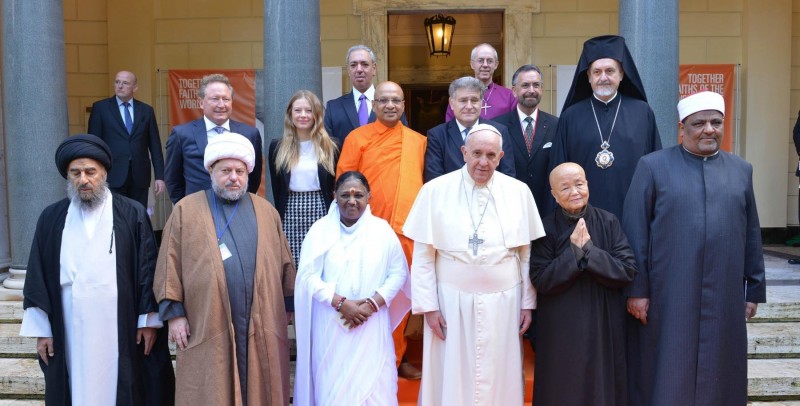
In a world as diverse as ours, religions play a crucial role in shaping cultures, beliefs, and interactions among people. Each religion offers unique perspectives on life, the universe, and the existence of a higher power. This article delves into the fascinating realm of world religions, exploring their origins, key beliefs, and how they interact with one another.
Religions have been an integral part of human civilization for thousands of years. They provide a framework for understanding the world, defining moral principles, and finding solace in times of difficulty. Let's embark on a journey through the diverse world of religions, exploring their origins, beliefs, and interactions.
Understanding World Religions
Defining Religion
Religion can be broadly defined as a system of beliefs, practices, and values centered around the existence of a higher power or powers that govern the universe. It often includes rituals, moral guidelines, and the concept of an afterlife. Religions offer answers to fundamental questions about life, death, and the purpose of existence.
Significance of World Religions
World religions hold immense significance in shaping the lives and cultures of billions of people. They influence social norms, customs, and traditions, playing a pivotal role in the development of societies throughout history.
Study of Comparative Religion
The field of comparative religion seeks to understand the similarities and differences among various religious traditions. This interdisciplinary study aids in promoting interfaith dialogue and fosters a deeper appreciation for diverse belief systems.
Major World Religions
Christianity
Christianity, with its roots in the teachings of Jesus Christ, is one of the world's largest religions. It emphasizes love, forgiveness, and salvation, and its followers congregate in churches for worship and community gatherings.
Islam
Islam, founded by the Prophet Muhammad, is a monotheistic faith centered around the teachings of the Quran. It emphasizes prayer, fasting, charity, and pilgrimage to Mecca (Hajj) as essential pillars of faith.
Hinduism
Hinduism, a complex and diverse religion, originates from ancient India. It encompasses a wide range of beliefs and practices, including the concepts of karma, dharma, and moksha.
Buddhism
Buddhism, founded by Siddhartha Gautama (Buddha), advocates for the Four Noble Truths and the Eightfold Path as a means to attain enlightenment and liberation from suffering.
Judaism
Judaism, one of the oldest monotheistic religions, is based on the covenant between God and the Jewish people. It involves the study of Torah and observance of mitzvot (commandments).
Sikhism
Sikhism, emerging in the Punjab region of South Asia, emphasizes the importance of meditation, selfless service, and the belief in one God.
Origins and Historical Development
Ancient Roots of Religions
Many world religions have ancient origins, dating back thousands of years. Their historical development is intertwined with the growth of early human civilizations.
Founders and Prophets
Several religions were established by charismatic founders or inspired prophets who conveyed divine messages to their followers.
Spread and Global Influence
Through trade, conquest, and missionary activities, religions have spread across continents, influencing cultures and societies on a global scale.
Core Beliefs and Practices
Concept of God or Deities
Religions vary in their understanding of the divine, from monotheism (belief in one God) to polytheism (belief in multiple deities).
Sacred Texts and Scriptures
Religious texts serve as essential sources of guidance and wisdom for followers, shaping their beliefs and practices.
Rituals and Worship
Rituals and worship practices vary among religions and may include prayers, ceremonies, and sacraments.
Moral and Ethical Guidelines
Religions often provide moral and ethical frameworks to guide the behavior and actions of their adherents.
Diversity of Religious Practices
Festivals and Celebrations
Religions celebrate various festivals and holidays, which hold cultural and religious significance.
Places of Worship
Distinctive places of worship, such as churches, mosques, temples, and synagogues, are central to religious practices.
Religious Art and Architecture
Religious art and architecture reflect the beliefs and values of the communities they serve.
Interactions and Interfaith Dialogue
Interreligious Cooperation
Interfaith dialogue promotes understanding, cooperation, and respect among followers of different religions.
Religious Pluralism and Tolerance
Religious pluralism acknowledges the existence of diverse religious beliefs and fosters an atmosphere of tolerance and mutual respect.
Challenges and Conflicts
Religious interactions can also lead to conflicts and tensions, often fueled by misunderstandings or historical animosities.
Impact on Society and Culture
Religion's Influence on Traditions
Religions shape cultural practices, influencing art, music, dance, and culinary traditions.
Religious Art, Music, and Literature
Religious themes have inspired some of the most profound and enduring works of art, music, and literature.
Religion's Role in Shaping Laws
In some societies, religious beliefs play a significant role in shaping legal systems and governance.
Religion and Modern Challenges
Secularism and Secularization
The rise of secularism challenges the influence of religion in public and political spheres.
Religion and Technology
Religions grapple with the impact of technology on traditional practices and communication.
Globalization's Impact on Religions
Globalization has facilitated the spread of religions, leading to both opportunities and challenges for their adherents.
World religions offer diverse and profound perspectives on life and spirituality. They have shaped human history, culture, and interactions, leaving an indelible mark on societies across the globe. By understanding and respecting one another's beliefs, we can foster a world of harmony and peaceful coexistence.
Solidarity Beyond Faith: How Hussaini Brahmins Supported Imam Hussain
Muharram 2023: Jammu govt postpones ‘Ashura’ holiday; See new date
Sindhi Religion: A Journey of Cultural and Spiritual Traditions